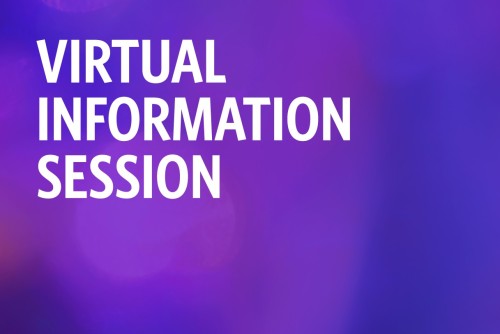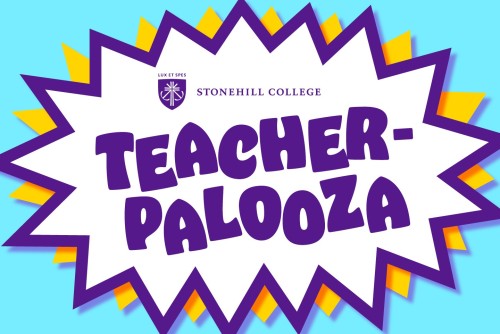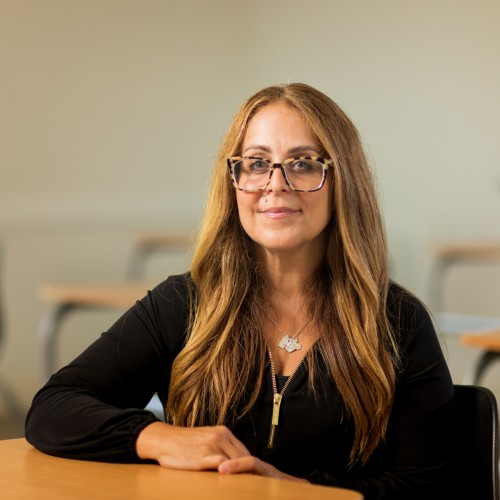Postbaccalaureate Licensure in Mathematics, 1-6
Stonehill's Postbaccalaureate Licensure in Mathematics, 1-6 prepares current educators who already hold a master's degree to create and lead inclusive learning environments for mathematics classrooms in grades 1-6. It leads to Massachusetts initial licensure in mathematics, grades 1-6.
Upcoming Application Deadlines
- Summer Semester: May 1, 2026
- Fall Semester: August 1, 2026
- Spring Semester: January 1, 2027
Earn Your Initial Licensure in Mathematics, 1-6
The Postbaccalaureate Licensure in Mathematics, 1-6 program prepares teachers to be leaders and critical thinkers. Schools today are complex and diverse communities — reflecting a landscape rich with individual differences. Teachers in our program are prepared using a unique combination of theoretical and practical experiences. This approach ensures their ability to create and lead equitable spaces where difference is valued while at the same time preparing them for the realities and challenges of the classroom and the profession.
In this program, students will:
- strengthen their grasp of key mathematical concepts, from arithmetic to algebra, functions and probability, so they can teach with clarity, confidence and precision
- develop skills to utilize effective, student-centered instructional strategies like high-leverage routines, problem-based learning and authentic assessment in grades 1-6
- gain the specialized content and pedagogical knowledge needed to support diverse learners in mathematics
This program includes a mix of in-person and online courses.
Why Graduate Teacher Education at Stonehill
- Focus on educational equity and diversity helps better prepare educators for the modern classroom
- A core of foundational courses ensures our graduates gain the skills to teach all students
- Faculty with well-established expertise in field
- Experiential learning via research, partnership and community opportunities
- Specialized student support framework guides students through program requirements and career preparation
Curriculum Keeps Inclusivity at the Center
Stonehill's graduate teacher education programs include unique and effective courses, programs and opportunities that foster innovation, transformation and leadership. Our curriculum keeps inclusivity central to how we prepare educators for schools, classrooms and community settings.
The 21-to-27 credit Postbaccalaureate Licensure in Mathematics, 1-6 program features a selection of courses designed to prepare educators for initial Massachusetts licensure in mathematics, grades 1-6.
This course covers current policy and practice related to English Learners (ELs) in schools with a special focus on Sheltered English Immersion (SEI) Settings. Topics will include diversity issues, content/academic vocabulary development and literacy skills (including listening, speaking, reading and writing) to provide teachers with the knowledge and strategies to support ELs in classrooms.
*May be waived with documented, state-approved sheltered English immersion (SEI) endorsement.
This course examines and unpacks contemporary issues in the field of education and provides prospective teachers with a beginning foundation for understanding the teaching profession and the U.S. education system, including policy and governance. The historical, legal, ethical, and pedagogical foundations for social justice education and democratic education will be explored, as well as the education reform context and emerging policies. The course will include an examination of professional ethics and standards.
Required field experience.
This course explores supportive, preventative, and proactive approaches to addressing the social and academic behaviors of students with disabilities and other diverse populations. Strategies for developing a positive classroom climate to support social and emotional development, including trauma and anxiety, will be central to the learning of the course. A variety of approaches, including the connection between communication & behavior, identifying contributing factors to challenging behavior, FBA, and behavior support plans will be explored.
This three-credit course provides an in-depth look at the teaching and learning of mathematics in elementary school. Students will deepen an understanding of the mathematical concepts taught in the elementary grades and practices of elementary school mathematics, along with highly effective instructional practices for teaching mathematics, broadly from grades 1-6. This course is centered around high leverage routines, problem-based learning, and authentic assessment for mathematics in elementary school.
This three-credit course is designed for future teachers and covers topics such as number sense, number systems and the meaning of operations. It also includes discussions on fractions, ratios, proportions, and number theory. The course explores the developmental progressions and learning trajectory in children regarding number and operations.
This three-credit course is designed for future teachers and covers algebra, functions, and fundamental concepts of calculus. It also explores the relationship of these concepts to the mathematics taught in elementary and middle school. The topics covered include the transition from arithmetic to algebra, exploration of expressions and equations, connecting algebra to functions, families of functions, sequences and series, limits, differentiation, and integration.
This three-credit course is designed for future teachers and delves into the fundamentals of Euclidean geometry to provide an in-depth understanding. It explores geometric concepts relevant to elementary and middle school mathematics, emphasizing an explorative approach supported by technological tools such as dynamic geometry software.
This three-credit course examines major mathematics concepts and applications of statistics and probability. It also explores the relationship of these concepts to the mathematics taught in elementary and middle school and explores effective teaching practices. The topics covered in this class include quantitative literacy, variability, statistical inference, probability, and statistical modeling.
In this course, teacher candidates will spend the semester within a fieldwork setting aligned with their area of licensure. Teacher candidates will design and implement cross-cutting lessons in their area of licensure and will also have experience evaluating and utilizing high-quality curricular materials, collaborating across the school setting, assessing students’ understanding, and designing individualized plans for students. Teacher candidates will receive targeted feedback throughout the semester from a qualified supervising practitioner and Stonehill course instructor.
The Reflective Seminar is a series of seminars taken concurrently with the practicum. Facilitated by Stonehill faculty and professional education practitioners, this capstone seminar will address current issues of best practice in education. Issues around assessment and evaluation of teaching as well as professional development and teacher support will be addressed.
Graduate clinical licensure capstone. Candidates spend a full semester in a grades 1-6 math placement to gain teaching experience while assuming gradual responsibility of the teaching role, culminating with a takeover of all responsibilities of a math teacher.
Upcoming Graduate & Professional Studies Events
-
Virtual Information Sessions
Join us for a virtual information session or drop-in session to learn more about our master’s degree and certificate programs.
-
Educator Licensure Information Sessions
Attend an Educator Licensure Information Session and get clear guidance on how to become a licensed educator. Whether you're exploring your options or have started the process, this session breaks down everything you need to know, including traditional and alternative pathways.
-
Graduate & Professional Studies Open House
Register for our Graduate & Professional Studies Open House on March 21! This event will provide a high-level introduction to our graduate degree and certificate programs.
-
Teacherpalooza: A Teacher Appreciation Event
Join us Wednesday, June 17, 2026, for Teacherpalooza, a teacher appreciation event hosted by Stonehill Graduate Teacher Education to thank educators for their hard work.
Studying Education at Stonehill
Stonehill College's graduate teacher education programs prepare educators to lead inclusive learning environments. The College offers master's degree, teacher licensure, community education and graduate certificate program options.
Schools today must strive to be inclusive environments, and educators in our program are prepared to be leaders in creating equitable spaces where difference is valued.
Graduate Teacher Education at Stonehill
Stonehill College's graduate teacher education programs aim to prepare knowledgeable, reflective, caring and flexible educators who embrace learning, scholarship, community and advocacy in their work. Social justice and democratic education are at the center of our work and underpins all programs, courses and experiences. We believe education can disrupt systems and processes that perpetuate injustice and inequity and embrace diversity and individuality as strengths.
We advance our mission by modeling the creation of democratic spaces in the graduate classroom that reflect equitable, accessible and inclusive learning environments where students' voices and perspectives help to shape the construction and the provision of their learning.
Three tenets guide our program philosophy:
- Social justice education
- Democratic education
- Anti-oppressive education
Graduate Teacher Education Program Outcomes
Our graduates
- Foster care, connection and community with students, colleagues and families
- Promote inclusivity, diversity and equity in educational spaces
- Work to disrupt systems that perpetuate oppression and inequity
- Embrace teaching practices that foster social justice and democracy
- Lead by making education accessible for all learners
- Elevate student voices and perspectives in education
- Act purposefully to continue to learn and contribute to the profession
Rigorous Academics and the Support to Succeed
Stonehill’s graduate teacher education programs recognize the challenges graduate students face in prioritizing work, family, personal and graduate school commitments. Our Graduate Student Support, Access and Success (SSAS) Framework is designed to support students’ success from program start to finish.
Specifically, this approach provides:
- A proactive vs. reactive framework for supporting graduate students’ variable needs within their program
- Clear benchmarks for assessment of candidate readiness
From the admission process to graduation, students have a clear understanding of both expectations and the support available to help them achieve their goals.
Contact Information
Graduate & Professional Studies Admission assists students as they explore graduate and professional opportunities offered at Stonehill College.
Meet the Director of Graduate Teacher Education





